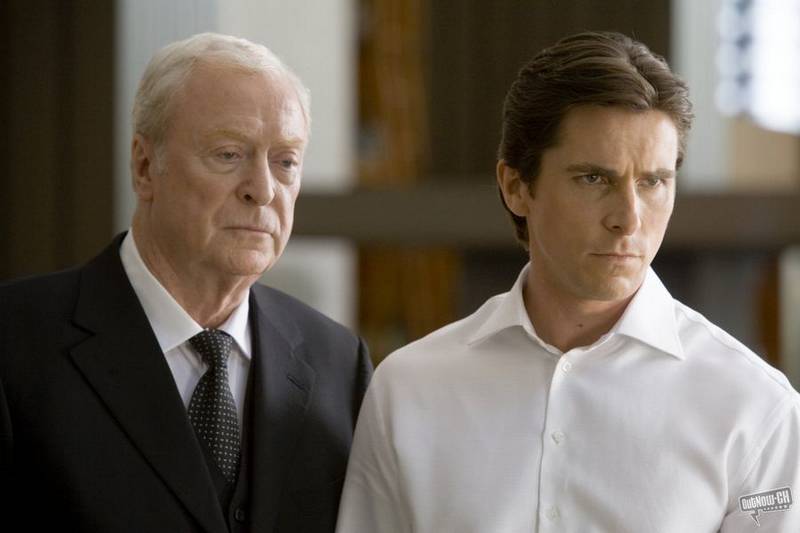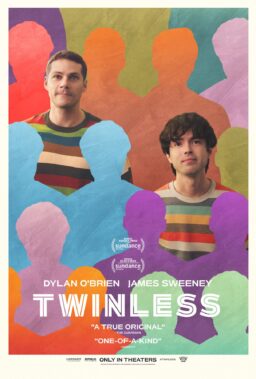BUDAPEST, HUNGARY – Michael Caine is one of the most watchable of movie actors, but why? And why is he an actor almost everyone seems to like – even though until recently, as he cheerfully puts it, “I was a star, but sort of a half-assed star”? I’m trying to figure out the answers to these questions while watching him act in a scene with a very different kind of star: Pele, the soccer player.
Caine is playing a British prisoner of war in John Huston‘s “Escape to Victory” [released in the U.S, as “Victory”]. Pele is a fellow POW. The scene involves tryouts for a prison camp’s soccer team — a team that will eventually play the Nazis. Caine has what looks like a simple job in this scene: He has to watch Pele toying skillfully with a soccer ball.
Movie acting is one of the trickiest things in the world to write anything intelligent about. What you see on the screen may be the achievement of the actor, or the director, or the editor, or maybe just a record of the way the sun was hitting the film stock on a given day. But it always begins with the actor.
John Huston quietly says, “Action!” and the scene begins. A soccer ball is rolled toward Pele, who picks it up on the top of his foot and begins to bounce it from his foot to his shoulder to his head. Caine walks over to him, pauses, watches, says, “Where’d you learn to do that?” End of scene.
It’s an elementary scene, but Caine somehow succeeds in projecting involvement, character and humor in it. His eyes help. He seems on the set, as he often seems on the screen, to be having fun: There is a joie de vivre in his manner that gives the scene an additional dimension it’s hard to put your finger on.
Later we’re sitting in the mess hall of the POW camp, talking about the scene. The sets for, “Escape to Victory” are so realistic that the mess hall actually functions as one, and the cast lines up at noon to eat. Caine’s sawing at a tough pork chop.
“The hardest thing for an actor to do is to do nothing,” he says. “You’re not just standing there while Pele’s playing with the ball. You have to project your interest. There’s no such thing as a shot where you’re not acting. That goes back for me to my days on the stage…I was standing there once and my director shouted, ‘What’s the matter with you!’ Nothing, I said, ‘That’s the bloody trouble! You should be standing there with 1,000 possible lines jammed into your brain, trying to decide which one to use. Nobody just stands around thinking nothing — except a bad actor without lines.’
“I’ve always remembered that. It helps me to look interested. I don’t worry about the last shot, or the next shot. I concentrate. Every shot gets a clean slate. And when a shot is over, I wipe it out absolutely. Tell a joke or something. If you worry about how you looked, how well you did, you’ll go insane. You can never tell until you see the scene on a screen.”
He pushes away his plate and lights a cigar. “You can see all sorts of things in film acting if you know where to look and what to look for,” he says. “One thing I often notice is that the actor is looking for his mark, the place where he has to stand to be in the right place in the shot. Spencer Tracy always looked for his marks. In a Tracy movie, he walks in, looks straight down at his mark, finds it, looks up and speaks. It became the Spencer Tracy style. Look for it: Tracy looking up at the camera and speaking. Gave him a sort of sincerity…but he was just a bloke looking for his mark.”
He smiles, inhales, exhales, enjoying his audience, “I instinctively find my mark,” he says. “I’m a straightforward starer . . . I never look down. I have to sense marks with my peripheral vision. But I invariably hit them.”
After lunch, Caine goes back out into the hot, dusty sun of the prison compound and shoots the same scene several more times. He brings a lot of zest to it: The later takes don’t seem dispirited. Between takes, he manipulates an ever-present cigar and tells bad jokes: Know how a kid in Beverly Hills learns to count? A million one, a million two…Caine lives in Beverly Hills now, and the move has been good for his career. He is talking about that the next day in his mobile home on the set, between scenes: “I lived on the banks of the Thames for 10 years, and I wasn’t getting the good roles. You can call London from Los Angeles easily enough, and I was on the other end of the phone, but they didn’t call. Out of sight, out of mind.”
It’s true that he wasn’t getting the good roles. Michael Caine is one of those stars who’s one of everybody’s favorites, but who has not necessarily made a lot of everybody’s favorite movies. He has made some great films (“Alfie,” “The Ipcress File,” “The Man Who Would Be King“), but he has also made “Beyond the Poseidon Adventure,” “Silver Bears” and the all-time stinker “The Swarm.”
“I’m getting better movies since I moved to America,” he claims. “This summer, I’ve got ‘The Island,’ ‘Dressed to Kill‘ and ‘The Hand.’ All very violent. After those three, I’ll be known as the king of violence, which is ironic, because I’m always looking for a comedy. They let me into ‘California Suite,’ but I had to play a gay. I try to put a little humor into everything I do, but sometimes that’s difficult. ‘Dressed to Kill,’ for example, is a thriller about a maniac woman and the problem of her psychiatrist — me — about whether to reveal her secrets to the police.” “Dressed To Kill,” which opened Friday in Chicago theaters, was directed by Brian de Palma, one of several name directors Caine has worked with recently, like Michael Ritchie (“The Island“), Herbert Ross (“California Suite”) and now John Huston. “I’m trying to work only with established, respected directors,” he says. “I took a lot of bad scripts and worked for a lot of lazy directors, and it was discouraging to go to the screenings and see that the director had added nothing, the editor had added nothing, there was nothing to see.” His rules for accepting a role, he says, are simple:
“1. Good director, even if unknown.
“2. Good screenplay.
“3. Good location, and can bring my family. If I open a script and the hero is trekking through darkest Africa, I close the script. Budapest is a nice location: I have my hotel in Buda-or is it Pest? – and I’m bringing my family over, and I enjoy the apple strudel. I remember the strudel from Elizabeth Taylor’s birthday party here, seven – or was it eight? – years ago. I was bombed the whole time and I don’t remember much else, but I remember the strudel.
“This time, I’m noticing more things. My hotel room overlooks the beautiful blue Danube. For days and days, I knew something was bothering me about that river, but I didn’t know what. Then I realized. It came from living 10 years overlooking the Thames. The Thames is a random river…boats come and go on it. But the Danube in Budapest is very scheduled. At the same time of day every day, the hydrofoil goes by. I was getting deja vu. There’s never an impromptu boat. That’s what I was missing.”
Another thing he is missing, he says, is Los Angeles: “That’s a surprise. I went on location to shoot ‘The Island,’ and realized with astonishment that the city I missed was not London but Los Angeles. That shows I’ve really moved. I’m even going to open a restaurant in Los Angeles. I was a partner in a London restaurant, Peter Langan’s Brasserie, near Green Park, and Peter and I are going to open another brasserie in Hollywood.
“I think I have the secret of a successful LA restaurant, especially now that so many Europeans live there. You have to have a place where they can see out the windows, see the world passing by. Europeans fancy that. The old Hollywood places, like Romanoff’s and the Brown Derby, were dark, closed rooms where you couldn’t see anything. That’s out of style now. The new LA type place is like Ma Maison, where you not only can see outdoors, you are outdoors. It goes back to the London chop house. That’s what LA needs…plus parking for 1,000 cars.”
Caine lights another cigar and announces, almost without prompting, that he is very happy these days. “I’ve had a nine-year run of happiness, ever since I got married to Shakira. Before that, I was running around too much. I was restless; I was a bit like Stallone is now, running around; I was divorced…now the days go by and I’m very happy, playing with my 6-year-old daughter for four hours at a time. Natasha is her name. I’m sane to the point of boredom…but not to me.”












